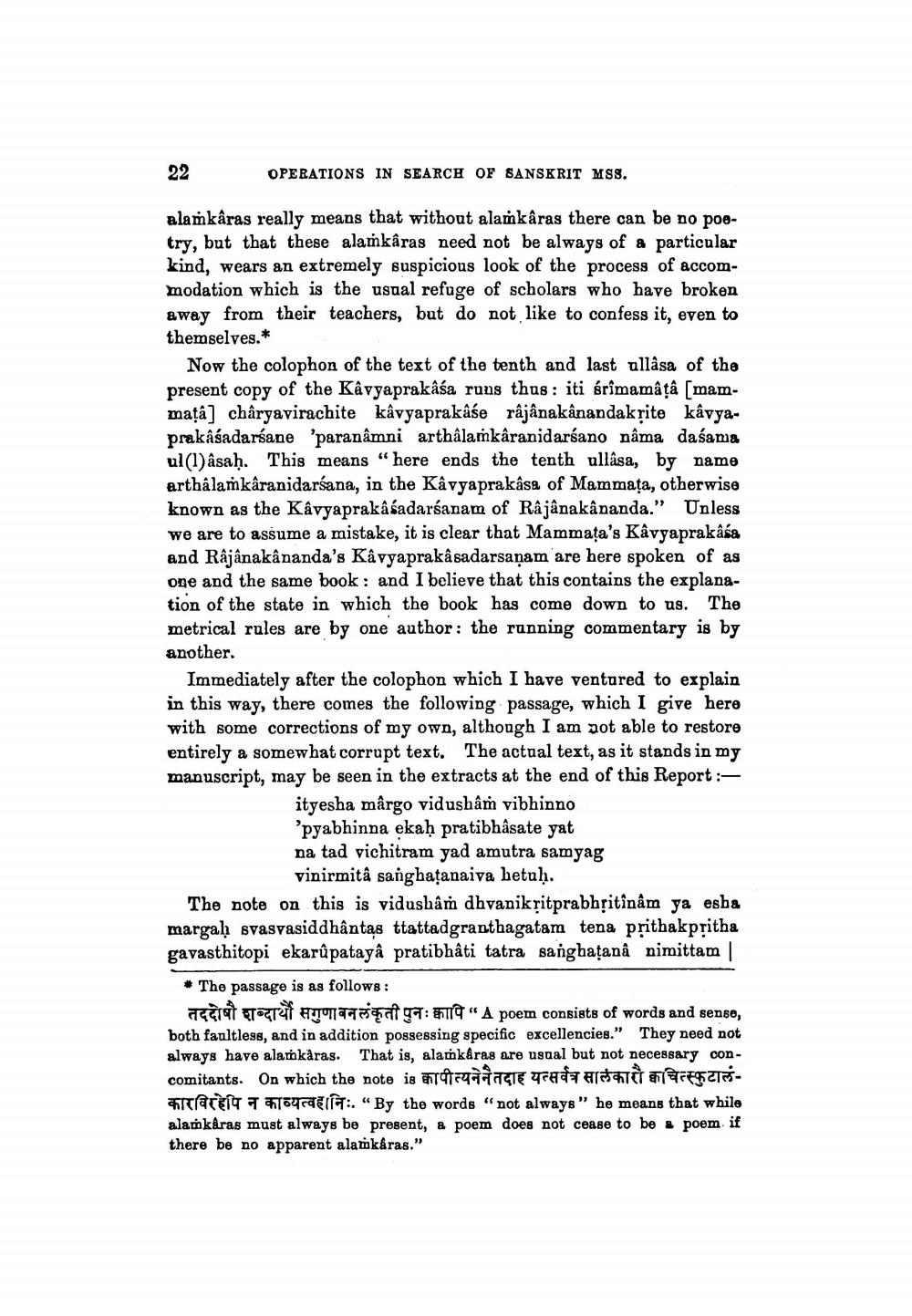________________
22
OPERATIONS IN SEARCH OF SANSKRIT MSS.
alamkâras really means that without alamkâras there can be no poetry, but that these alamkâras need not be always of a particular kind, wears an extremely suspicious look of the process of accommodation which is the usual refuge of scholars who have broken away from their teachers, but do not like to confess it, even to themselves.*
Now the colophon of the text of the tenth and last allása of the present copy of the Kâvyaprakaśa runs thus : iti srimamâțâ [mammațâ] châryavirachite kâvyaprakaśe râjânakânandakrite kâvyaprakásadarśane 'paranâmni arthâlamkâranidarśano nama daśania ul(1)āsaḥ. This means “here ends the tenth allása, by name arthalamkâranidarśana, in the Kavyaprakasa of Mammata, otherwise known as the Kâvyaprakâsadarśanam of Râjânakânanda." Unless we are to assume a mistake, it is clear that Mammata's Kavyaprakasa and Râjânakânanda's Kavyaprakâ sadarsaņam are here spoken of as one and the same book : and I believe that this contains the explanation of the state in which the book has come down to us. The metrical rules are by one author: the running commentary is by another.
Immediately after the colophon which I have ventured to explain in this way, there comes the following passage, which I give here with some corrections of my own, although I am not able to restore entirely a somewhat corrupt text. The actual text, as it stands in my manuscript, may be seen in the extracts at the end of this Report :
ityesha mârgo vidushâm vibhinno 'pyabhinna ekah pratibhâsate yat na tad vichitram yad amutra samyag
vinirmitâ sangbatanaiva betuh. The note on this is vidushâm dhvanikritprabhşitînâm ya esba margah svasvasiddhantas ttattadgranthagatam tena prithakpritha gavasthitopi ekarûpatayâ pratibhâti tatra sanghatana nimittam | * The passage is as follows: astrattoret hom
: " A poem consists of words and sense, both faultless, and in addition possessing specific excellencies." They need not always have alamkaras. That is, alamkaras are usual but not necessary concomitants. On which the note is क्वापीत्यनेनैतदाह यत्सर्वत्र सालंकारो क्वचित्स्फुटालंaitarent Trap EITT:. "By the words "not always" he means that while alam kåras must always be present, a poem does not cease to be . poem if there be no apparent alamkaras."




